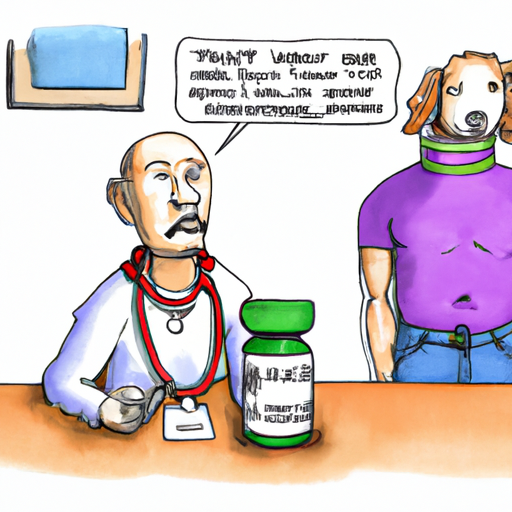As a caregiver, you’re no stranger to the needs and care of those dependent on you. When your four-legged companion requires medical treatment, it’s only natural you’d want to understand the ins and outs of it. In this piece, we’ll explore the aspects of thyroid medication for dogs, focusing on the speed of its effectiveness, and what you can expect.
1. Understanding Your Dog’s Thyroid Condition
Taking on the role of caregiver for a dog with a thyroid condition can feel like uncharted territory. The thyroid is a small gland in the neck responsible for producing hormones that regulate the body’s metabolism. When this gland malfunctions, it can lead to conditions such as hypothyroidism – an underactive thyroid, or hyperthyroidism – an overactive thyroid.
Symptoms to look out for include:
- Unexplained weight gain or loss
- Excessive thirst and urination
- Skin and coat problems
- Behavioral changes
2. The Importance of Thyroid Medication
If your dog has been diagnosed with a thyroid condition, medication is often prescribed to regulate the hormone levels. This medication is vital for managing the condition and ensuring your dog can lead a healthy, happy life.
The prescribed medication usually falls into two categories:
- Hypothyroid medication: Levothyroxine is the most common medication, used to replace the missing thyroid hormones in dogs with hypothyroidism.
- Hyperthyroid medication: Medications like Methimazole and Carbimazole are used to decrease the production of thyroid hormones in dogs with hyperthyroidism.
3. How Quickly Does Thyroid Medication Work in Dogs?
You’re probably wondering, “how quickly will my dog start to feel better?” It’s a common question, and understanding the timeline can help set realistic expectations and reduce anxiety.
| Medication | Time to Effectiveness |
|---|---|
| Levothyroxine | 4 to 8 weeks |
| Methimazole/Carbimazole | 2 to 3 weeks |
Bear in mind, every dog is unique, and the response times can vary. However, with consistent medication and regular vet check-ups, most dogs begin to show improvement within these timeframes.
4. Monitoring Your Dog’s Progress
As a caregiver, keeping an eye on your dog’s progress is crucial. Regular vet visits are important, but you also play an essential role in monitoring changes at home.
Look out for:
- Improvement in symptoms
- Behavioral changes
- Appetite and weight changes
- Any side effects
5. Ongoing Management and Care
Managing a dog’s thyroid condition is not just a one-time thing. It requires ongoing care and attention.
- Consistency is key – Ensure your dog receives their medication consistently and at the recommended dose.
- Regular vet visits – Routine check-ups will help monitor your dog’s progress and adjust medication if necessary.
- A healthy lifestyle – Regular exercise and a balanced diet can also support your dog’s overall health.
Frequently Asked Questions (FAQs)
Q: Can my dog live a normal life with a thyroid condition?
A: Yes, with proper medication and care, dogs with thyroid conditions can lead happy, healthy lives.
Q: Can I stop giving my dog medication once symptoms improve?
A: No, thyroid medication is typically a lifelong commitment and should not be stopped without consulting your vet.
Q: How often should I take my dog for check-ups?
A: The frequency of vet visits can vary, but generally, dogs with thyroid conditions should have check-ups every 3-6 months.
Q: Are there any side effects of thyroid medication?
A: Some dogs might experience side effects such as vomiting, lethargy, or loss of appetite. It’s crucial to communicate any changes to your vet.
Remember, as a caregiver, your role is significant in your pet’s health journey. Stay informed, stay diligent, and most importantly, stay patient. You’re doing great!



